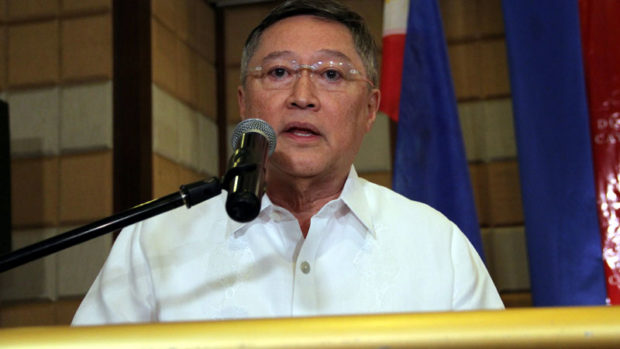PH prepares economic battle plan vs recession
As the global economy entered a recession amid the COVID-19 pandemic, the Philippines will try to shield its domestic economy through a stimulus plan, the Duterte administration’s chief economic manager said.
Asked if the economic team will put in place additional fiscal and monetary measures amid the global recession declared by the International Monetary Fund (IMF), Finance Secretary Carlos Dominguez III replied: “We are targeting the first draft by the end of the week.”In a statement on Tuesday, Dominguez said the stimulus package would be responsive to the uncertainties of the situation, noting that “at this point, nobody knows how bad this pandemic will get or how long it will last.”
Also, he said the Philippines was awaiting the details of the terms and conditions of the IMF’s offer to mobilize its $1-trillion lending facility to countries needing more financial assistance to combat the economic fallout from the COVID-19.
The government targets a 6.5-7.5 percent economic growth this year, but estimates of state planning agency National Economic and Development Authority show that full-year gross domestic product may grow by only 4.3 percent at most or, in the worst case, contract by 0.6 percent.Last week, Dominguez said the government would prioritize assisting displaced workers, hence he thumbed down proposals to provide tax breaks to affected firms.
The Department of Finance on Tuesday said the emergency subsidies to be extended under Republic Act No. 11469, or the Bayanihan to Heal as One Act, signed by the President last week formed part of the biggest-ever social protection program in the Philippines.
Article continues after this advertisement“The P200-billion program for distribution in cash and basic needs over the next two months is the largest direct financial assistance program granted by the government to Filipino families in our country’s history,” Dominguez said.
Article continues after this advertisement“We will deliver this emergency subsidy to millions of Filipinos who live day-to-day on subsistence earnings or ‘no-work, no-pay’ arrangements … through various national and local programs in the form of food, cash and other essentials in the next two months,” he said. As for the private sector, Dominguez said the government would “eventually put in place programs for affected businesses so the economy could bounce back as soon as we beat this lethal virus.”In the meantime, World Bank chief economist for East Asia and the Pacific Aaditya Mattoo said in a virtual press briefing on Tuesday that the economic stimulus packages rolled out across the globe should prioritize vulnerable sectors given that “this is not an ordinary recession.”
“This is not a situation where unemployed workers and shut-down factories are waiting for government stimulus packages, injections of government spending, relaxation of monetary policy as a purely expansionary Keynesian kind of response. When people can’t work, that kind of traditional macroeconomic response might be too much rather than too little, because it might generate more inflation rather than economic activity,” Mattoo said. “In the first period [of response], the emphasis has to be to help consumers … to help firms weather the storm,” Mattoo said.
“Once you have contained the virus, that’s when expansionary policy will be fighting for recovery, whether it’s fiscal or monetary,” Mattoo added. INQ
For more news about the novel coronavirus click here.
What you need to know about Coronavirus.
For more information on COVID-19, call the DOH Hotline: (02) 86517800 local 1149/1150.
The Inquirer Foundation supports our healthcare frontliners and is still accepting cash donations to be deposited at Banco de Oro (BDO) current account #007960018860 or donate through PayMaya using this link.
